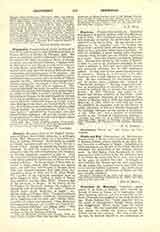

Chauncy, MAURICE, Prior of the English Carthusians at Bruges, date of birth unknown; d. at Bruges, July 2, 1581. He was the eldest son of John Chauncy, Esq., of Ardeley, Hertford. Wood thinks he studied at Oxford, and afterwards went to Gray’s Inn for a course of law. Finally he entered the London Charterhouse. In 1535 the majority of the Carthusians refused to take the oath of supremacy, but Chauncy, on his own confession, consented to take it. After the surrender of the monastery in 1537, Chauncy with a few others joined the Carthusians of Sheen who had settled in Bruges. On the accession of Mary they returned to Sheen, and in 1556 Chauncy was elected prior. In 1558 they retired again to Bruges, living with their Flemish brethren until 1569, when they obtained a house of their own in St. Clare Street. The hostility of the Calvinists compelled them to leave Bruges in 1578. Failing to settle at Douai, they retired to Louvain (May, 1578). Chauncy died at the old house in Bruges. In his history of the Carthusians he frequently laments his weakness in taking the oath of supremacy. He wrote: “Historia aliquot nostri saeculi . Martyrum in Anglia”, etc. (Mainz, 1550, and Bruges, 1583); “Commentariolus de vitae ratione et martyrio octodecim Cartusianorum qui in Anglia sub rege trucidati sunt” (Ghent, 1608), a portion of which was reprinted; “Vitae Martyrum Cartusianorum aliquot, qui Londini pro Unitate Ecclesiae adversus haereticos”, etc. (Milan, 1606). “The Divine Cloud of Unknowing”, in manuscript, is ascribed to him by Anthony A Wood.
G. E. HIND

